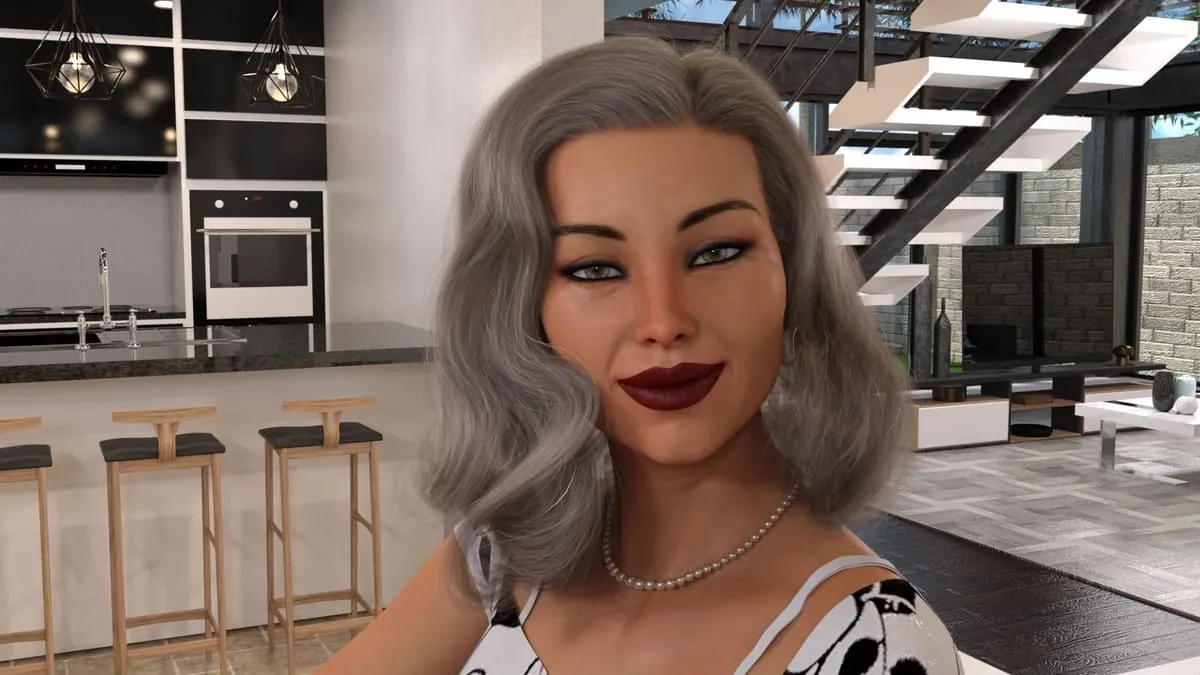
Grandma’s House
Play Grandma’s House
Grandma’s House review
Explore the immersive storyline, interactive choices, and character dynamics in this adult narrative experience
Grandma’s House stands out as a unique narrative-driven experience that combines interactive storytelling with complex character relationships. Developed by Moonbox Games, this title has evolved through multiple versions, each adding depth to its branching storyline and character development. Whether you’re new to the game or looking to understand its mechanics better, this guide covers everything you need to know about gameplay, story progression, character dynamics, and the choices that shape your experience. The game emphasizes meaningful decision-making where your actions directly influence relationships and story outcomes, creating a personalized journey through its richly detailed world.
Understanding Grandma’s House: Core Gameplay Mechanics and Story Foundation
What Makes Grandma’s House Unique in Interactive Storytelling
Let’s be honest, a lot of narrative games promise a world shaped by your choices, only to deliver a funnel that leads you to one of two endings. 🙄 I remember playing one where my “life-altering” decision was literally whether to have my character drink coffee or tea in the morning. Riveting stuff. 😴 This is where Grandma’s House from Moonbox Games completely flips the script. It’s not just a game; it’s a dynamic, breathing world where your choices aren’t just noted—they resonate.
The core of the Grandma’s House game mechanics is a profound commitment to authenticity. Instead of a rigid plot you’re dragged through, you’re given a sandbox of personalities and a simple premise: you’re staying at your grandmother’s house for the summer. What happens next is entirely up to you. The game’s unique flavor of interactive storytelling gameplay means there are no quest markers screaming for your attention. The story unfolds in the quiet moments, the conversations on the porch swing, the offers to help with chores, and the decisions to be vulnerable or reserved. It feels less like playing a game and more like living a slice of life.
What truly sets it apart is the pacing. Moonbox Games Grandma’s House operates on human time, not video game time. Relationships don’t blossom after completing three tasks. Trust isn’t earned in a single, dramatic conversation. This philosophy forces you to slow down and genuinely consider your actions. I learned this the hard way! In my first playthrough, I bombarded the character Allie with constant attention, thinking I was being “nice.” The game’s response? She became visibly distant and awkward, needing space. It was a brilliant, subtle piece of design that taught me to read the room—a lesson many real-life interactions could benefit from.
This approach is powered by a technical marvel. With over 600 beautifully crafted renders, every scene feels unique and alive. The characters’ expressions, the lighting in different rooms, the small details in the environment—they all work in concert to sell the reality of this world. You’re not just reading text prompts; you’re watching your story unfold in vivid detail, making every choice feel that much more significant. 🖼️✨
How Decision-Based Gameplay Shapes Your Experience
If you think your choices in most games matter, Grandma’s House is here to challenge that notion. This is a decision-based narrative game in its purest form. There is no “right” path, only your path. Every dialogue option, every decision to spend time with one character over another, and even your internal monologue choices weave together to create a narrative tapestry that is uniquely yours.
The system of branching storyline choices is incredibly nuanced. It’s not about picking a “good” or “evil” alignment. It’s about shaping your personality and, in turn, how the world reacts to you. Are you the charismatic, flirty type who lightens the mood? Or are you the thoughtful, reserved listener who earns confidences slowly? The characters remember, and they react accordingly. Your reputation precedes you.
Let me give you a real, tangible example from my own experience. Early in the game, you have a pivotal conversation with Sandra and Karen together. The topic of a past family disagreement comes up.
- Choice A: I chose to gently deflect and change the subject, trying to keep the peace.
- Choice B: A friend of mine, playing his own save, chose to press for details, siding with Karen’s perspective.
My choice (A) resulted in Karen appreciating my diplomatic nature, later confiding in me about her stress. Sandra, however, remained slightly more guarded, sensing my reluctance to engage in conflict. My friend’s choice (B) created an immediate, stronger bond with Karen, who felt validated. But Sandra became cold and distant for the next several in-game days, requiring significant effort to repair the relationship. This one decision didn’t just change a single scene; it altered the dynamic of my entire playthrough, opening some doors while quietly closing others. 🚪 This is the power of the interactive storytelling gameplay at work.
The game masterfully uses this system to create varied encounters. An intimate scene with a character you’ve built a deep, trusting connection with over time feels completely different—more emotionally charged and meaningful—than one that occurs through a series of flirtatious, fast-paced choices. The game doesn’t judge you for your path; it simply reflects it back at you with stunning consistency.
Pro Tip: Don’t save-scum! The most rewarding way to play is to live with your decisions. The “mistakes” and unexpected outcomes often lead to the most memorable and authentic story arcs.
Character Relationships and Long-Term Progression Systems
This is the heart and soul of the experience. The character relationship progression in Grandma’s House is a masterclass in patience and payoff. Forget experience points and level-up notifications. Here, progression is measured in shared glances, inside jokes, and the slow erosion of emotional walls. Figuring out how to progress relationships in Grandma’s House is the core gameplay loop, and it’s wonderfully complex.
Each character is a fully realized person with her own history, temperament, and pace. The game brilliantly mirrors real-life social dynamics. Some people are open books, ready for a deep connection quickly. Others have built fortresses around their hearts, and you’ll need to prove your trustworthiness brick by brick. This long-term focus is what makes the eventual breakthroughs so incredibly satisfying. When a character like Polly, who may initially seem aloof, finally shares a vulnerable part of herself with you, it feels like a genuine achievement. 🏆
The progression isn’t linear, either. A single misstep can set you back, while a perfectly timed, empathetic response can leapfrog you forward. It’s a delicate dance. The game tracks a hidden web of affinity, trust, and romance variables for each character, all of which are influenced by your cumulative choices. This ensures that your relationships feel organic and earned.
To help you navigate these complex social waters, here’s a breakdown of how different characters tend to approach relationships. Remember, these are general tendencies—your unique choices can always alter the course!
| Character | Progression Speed | Trust-Building Requirements |
|---|---|---|
| Veena | Fast 🚀 | Open communication, honesty, and shared activities. |
| Sandra | Moderate to Fast | Confidence, a bit of boldness, and showing initiative. |
| Karen | Moderate | Emotional support, being a good listener, and reliability. |
| Allie | Slow and Steady 🐢 | Patience, respecting her boundaries, and consistent, gentle friendship. |
| Polly | Very Slow | Proving your loyalty over time, subtle gestures, and deep conversations. |
Understanding these dynamics is key to the Grandma’s House game mechanics. You can’t use the same approach with everyone and expect success. Trying to rush a relationship with Allie will backfire spectacularly, while being too passive with Veena might cause her to lose interest. This variety is what encourages multiple playthroughs; you’ll want to go back and see how a different “you” would connect with these fascinating characters.
For those who want to explore specific outcomes or perhaps undo a choice they truly regret, the game includes a developer console system. This isn’t a “cheat” so much as a storytelling tool, allowing you to check your progress with characters or unlock specific scenes to see how different branching storyline choices play out. It’s a fantastic feature for completionists or anyone fascinated by the game’s intricate narrative design.
Ultimately, the character relationship progression system is what makes Grandma’s House more than a game. It’s a thoughtful exploration of human connection, demanding your empathy and attention, and rewarding you with one of the most personal and impactful stories you’re likely to experience. Your journey through that summer at your grandma’s house will be yours, and yours alone. 🌟
Grandma’s House represents a thoughtful approach to interactive narrative gaming that prioritizes authentic character development over rushed interactions. The game’s strength lies in its commitment to letting relationships develop naturally, where characters like Allie and Polly require genuine trust-building before progressing, while others may move more quickly based on their personality types. With over 600 detailed renders, atmospheric sound design, and a branching storyline system that responds to your choices, the game creates a personalized experience where each playthrough can differ significantly based on your decisions. Whether you’re interested in exploring multiple character relationships simultaneously or focusing on specific story arcs, understanding the game’s mechanics, progression systems, and character dynamics enhances your ability to shape a unique narrative. The developer console features and comprehensive walkthrough systems provide tools for players who want to optimize their experience or explore alternative paths. For those seeking a narrative-driven game that respects player agency and emphasizes meaningful choices over immediate gratification, Grandma’s House offers a compelling and immersive experience that rewards thoughtful decision-making and relationship investment.






























